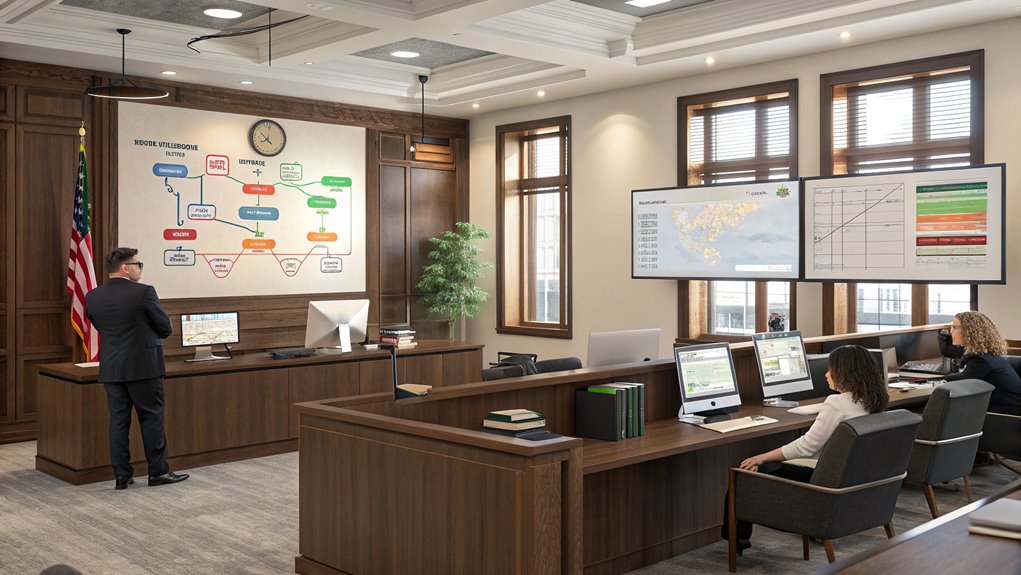Are you looking at the growing caseload on your desk and thinking it might be time to enlist an extra hand? If so, you might be in the market for a legal assistant—someone to support you and your practice with a variety of tasks, primarily administrative and organizational.
What is the difference between a legal assistant vs paralegal? This role differs from a law clerk and paralegal in a number of ways and can be shaped according to your private law firm’s specific needs, providing unique value that other positions may not fully cover.
What is a legal assistant, you ask? It may be just the role you need to streamline your legal practice’s daily operations.
Legal Assistant Responsibilities
With lawyers billing their time at hundreds of dollars per hour, their days are devoted to legal advice, representation, and other legal services. However, there are a number of essential yet relatively simple tasks that still need to be taken care of—these organizational and sometimes research- or communication-based tasks often fall to legal assistants:
- Organizing and preparing evidence and any legal document
- Drafting, preparing, and proofreading legal correspondence
- Contacting and scheduling clients and witnesses
- Researching laws, regulations, and legal articles
- Completing general administrative duties, like filing and copying
What Are The Key Qualities of a Good Legal Assistant?
From dealing with distraught clients to meticulous documentation, excellent legal assistants have relevant temperament and skills. A qualified legal assistant will likely have:
- Strong written and verbal communication skills
- A detail-oriented disposition and ability to maintain focus
- Patience and a calm manner with people from all walks of life
- Top-notch organization, ability to prioritize tasks, and pivot for urgent deadlines
- Spreadsheet, word processing, and calendaring software proficiency
Legal Assistant Education and Qualifications
While many legal assistants have associate’s degrees, this profession is also open to high school graduates with relevant skills and attributes.
Some employers may have specific requirements based on how much legal research and support is expected of a new hire. Legal assistants can be qualified for a position based on one or a combination of the following:
- Associate’s degree – The closest thing to a legal assistant education at most schools is a paralegal program leading to an associate’s degree. Paralegal studies provide training in many of the skills needed to succeed as a legal assistant.
- Work experience – If the position includes significant administrative work, experience as an administrative assistant in a professional environment is highly desirable—especially if the position was in the legal field.
- Program certificate – The most relevant formal certification for legal assistants is either a paralegal or legal secretary certificate.
Additionally, many law firms provide some type of on-the-job training for legal assistants.
Certification Options
There is no national association of legal assistants named as such. This role is often a bridge between a legal secretary and paralegal, so certification in either of those areas may be useful for a legal assistant. These include:
- Legal secretary certification – The National Association for Legal Secretaries (NALS) offers exam-based certificate programs requiring as little as a high school education and one year of general office administration experience to apply for the Accredited Legal Professional (ALP).
- Paralegal certification – There are several options to become a certified paralegal but they all require 5 to 7 years of work experience as a paralegal plus either a paralegal associate’s degree or a bachelor’s degree in any subject. These include:
- Certified Paralegal (CP), National Association of Legal Assistants (NALA)
- Paralegal Advanced Competency Examination (PACE), National Federation of Paralegal Associations (NFPA)
- AACP certification, American Alliance of Paralegals (AAPI)
Workplace Environments for Legal Assistants
Not all law firms feature the kind of drama you see on TV. Legal assistants can support attorneys in a number of workplace environments, including:
- Small criminal justice and family law office
- Corporate legal department
- Large private law firm
Even independent, one-person practices can benefit from clerical assistance.

Outsourcing Legal Assistant Services
An excellent legal assistant can be an ongoing asset to a law firm, but they can also be hard to find—the skills needed can vary greatly depending on the practice and will often evolve over time. Instead of identifying, interviewing, and hiring one salaried individual, many law firms have decided on outsourcing law firm administrative support and have chosen to work with a company like Alert for a qualified legal assistant or receptionist.
This can be an especially effective decision in instances such as:
- Small firms without internal HR resources to hire, train, and retain personnel
- Firms in start-up or growth stages stretching beyond current capacities
- Seasonal peaks requiring additional coverage
- Major cases, projects, or special circumstances requiring immediate help
- Coverage for employee leaves and transitions
Your practice can skip the next round of hiring and jump straight into the streamlined convenience of an already trained outsourced staff, including essential tasks like client intake, lead capture, legal marketing, live chat, messaging services, and answering phone calls. You can even take it one step further with a virtual legal assistant.
Custom Solutions for Legal Communications
Whether you need to expand your current support or start from scratch, Alert can work with you to provide high-quality client communications and administrative support through our legal call center. Our omnichannel approach includes phone, chat, text, and web to give you 24/7 coverage that streamlines your legal practice and supports you in the ways you need.
We provide law firms with a tech-enabled, analytics-based approach to support client intake, inbound and outbound legal sales calls, and appointment scheduling. Contact us today to find out more.
Sources:
NALS. Accredited Legal Professional (ALP) Exam Requirements. https://www.nals.org/page/ALPExamRequirements
United States Bureau of Labor Statistics. Paralegals and Legal Assistants. https://www.bls.gov/ooh/legal/paralegals-and-legal-assistants.htm






